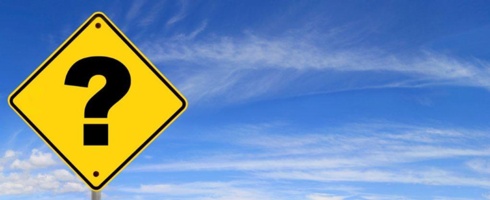![[Image: masthead]](/mhau001/includes/themes/MHAUS_2016/images/masthead/masthead-large.png)
Outside NA: 001-209-417-3722
FOR EMERGENCIES ONLY
Frequently Asked Questions

A list of the most frequently asked questions that we receive from both Medical Professionals and Patients.
Choose a specific category from the menu to filter the list of FAQs.
Category: Management of MH Susceptible Patients
- Are MH-susceptible (MHS) individuals at risk for MH symptoms/episode if exposed to triggering agents while working in an operating room or similar environment?
-
NO. There are no cases reported of MHS patients having problems on exposure to waste anesthetic gases while working in the OR. The usual OR procedures maintain very low, trace amounts of the potent volatile anesthetics in the air. During a mask induction, someone within two feet or so of the face of the patient may be exposed to somewhat greater concentrations, but that is easily avoided. Further, the volatile agents are heavier than air and drift down to the floor, where the excellent ventilation systems efficiently clear the vapors. In addition, the data from pigs indicate that very low concentrations of anesthetics do not trigger MH in these highly susceptible animals. There is only one report of muscle cramps and fatigue in a MHS person who worked in a factory where he was exposed to chemicals whose structure is similar to that of potent inhalation agents. (See Consensus Statement for MHS OR Personnel at www.mhaus.org.)
- How should I manage a patient with a family history of MH?
-
The family should be referred to a Biopsy Center Director or MH expert associated with MHAUS for discussion of testing options to determine MH susceptibility. Until proven otherwise, manage as if MH susceptible with a non-triggering anesthetic technique.
- How should the anesthesia machine be prepared before surgery for an MHS patient?
-
Please see Preparing the Anesthesia Machine for MHS Patients for complete details.
- How should I prepare the pump on the machine used for cardiopulmonary bypass?
-
Do not attach an anesthetic vaporizer; otherwise, no other changes.
- How long should MHS patients be monitored after uneventful anesthesia?
-
The MH Susceptible patients undergoing outpatient surgery may be discharged after meeting standard criteria without extended stay in PACU or Day Surgery Unit and after an uneventful, non-triggering anesthetic. (doi: 10.1016/j.bja.2020.09.029)
- Is it necessary to purchase an ice machine?
-
In the absence of an ice machine, there should be an adequate supply of ice in the freezer or freezing compartment of a refrigerator and the ability to crush it. Also, saline solution for central cooling in case of an MH crisis should be kept cooled in the blood or drug refrigerator.
- Can calcium gluconate or calcium chloride be used when treating hyperkalemic cardiac toxicity during an MH crisis?
-
Either calcium gluconate or calcium chloride can be used to treat life-threatening hyperkalemia. Gluconate (10-50 mg/kg) is less potent, but is less irritating to peripheral veins. The higher potency calcium chloride (4-10 mg/kg) is more appropriate for the acute situation.
- What should I do to manage an acute MH case or suspicious MH case?
-
Advice regarding acute emergencies can be obtained through the MH Hotline. MH cases should be reported to the North American MH Registry of MHAUS. Forms for data collection can be obtained from the Registry or MHAUS. MHS patients and their families should be put in contact with MHAUS to obtain more detailed information regarding MH and the risks for family members.
- Is Masseter Muscle Rigidity a response to Succinylcholine?
-
Masseter (jaw) muscle rigidity (MMR) denotes trismus to the extent that it is difficult or impossible to open the jaw. Mild and/or transient MMR is a normal response to succinyicholine and is considered to be of no prognostic significance with respect to MH. [Longnecker et al. Anesthesiology. Pg 1969. 2008. McGraw Hill, New York] Approximately 1% of children receiving anesthesia induced by halothane or sevoflurane and then given succinylcholine develop MMR. [Rosenberg, 2007] If a patient has received succinyicholine and his/her jaw cannot be opened or the patient has peripheral muscle rigidity, the clinician should assume this is an MH event and immediately begin MH treatment. Generalized rigidity may not be present, but when it is, it is regularly associated with MH susceptibility.
The actual physiologic changes associated with the onset of MH such as rise in ETCO2 may be delayed for up to 15 minutes after MMR, but will occur if trigger agents are continued. Hence whenever MMR occurs following succinyicholine, elective surgery should be postponed. If the procedure is emergent, the anesthetic may continue with nontrigger agents.
All patients who develop succinylcholine-induced MMR will experience rhabdomyolysis over the ensuing 24 hours. Hence the patient should remain in the hospital and be monitored for signs of rhabdomyolysis such as myoglobinuria and myoglobinemia. CK levels and electrolytes should be checked every 8 hours until returning to normal.
- Are MHS patients candidates for outpatient surgery?
-
MHS patients can safely undergo outpatient surgery using non-triggering anesthetics and may be discharged on the day of surgery if the anesthetic has been uneventful.
Watch this video FAQ for more information.
- When should MHS patients be discharged from ambulatory facilities after episodes of masseter spasm?
-
Masseter (jaw) muscle rigidity (MMR) denotes trismus to the extent that it is difficult or impossible to open the jaw. Masseter spasm has a spectrum of severity from mild increase in jaw tension to “jaws of steel.” A patient who exhibits marked rigidity of the jaw muscles should not be discharged. Overnight observation for temperature rise, myoglobinuria, elevated CK levels or progression to an MH episode is required. Patients who experience milder increases in jaw tension should be observed for signs and symptoms of MH for at least 12 hours. If there is evidence of myoglobinuria, dark cola-colored urine, increase in temperature, pulse rate, and abnormality of acid base balance, the patient should be admitted and observed overnight.




